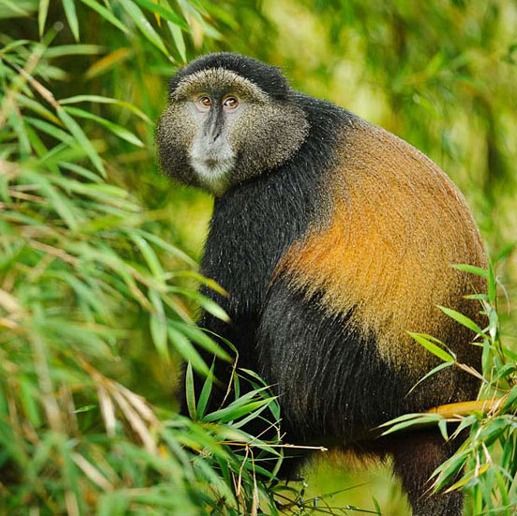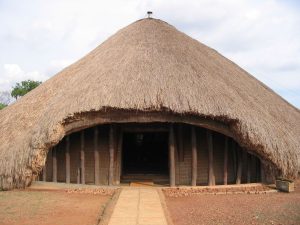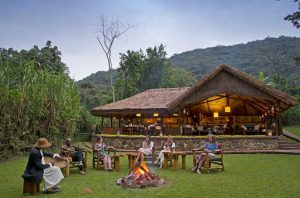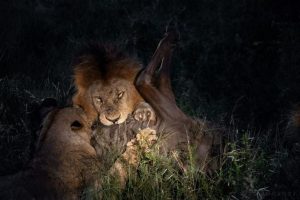Rwanda is famous for its mountain gorillas, but it also offers a lesser-known yet incredibly rewarding experience the golden monkey habituation trek. This immersive adventure takes place in Volcanoes National Park, where visitors have the rare opportunity to spend extended time with golden monkeys in their natural habitat.
If you’re planning a visit and wondering how long you get to stay with golden monkeys on a habituation experience in Rwanda, this guide will explain the timing, what the experience involves, and how to prepare for it.
What Is the Golden Monkey Habituation Experience?
The golden monkey habituation experience is a specialized primate trek where visitors join conservation researchers and rangers to observe semi-habituated troops of golden monkeys for a prolonged period. Unlike the standard golden monkey trek that limits visitors to one hour with the monkeys, the habituation trek allows for a longer, in-depth experience.
This experience is ideal for:
- Nature photographers
- Wildlife researchers
- Conservation enthusiasts
- Travelers seeking more than the average primate encounter
How Long Do You Spend with the Golden Monkeys?
On the habituation experience in Volcanoes National Park, visitors typically spend up to 4 hours observing the golden monkeys after locating them. The total time spent in the forest, including the trek to find the monkeys and the time spent with them, ranges from 4 to 6 hours.
Here’s a breakdown of the schedule:
- Start time: Around 7:00 AM at Kinigi Park Headquarters
- Trek duration: 1–2 hours depending on the location of the troop
- Time with monkeys: Up to 4 hours
- Total forest time: 4–6 hours
This extended stay allows you to observe a wider variety of behaviors, such as grooming, feeding, social interaction, and movement patterns through the forest.
Why Is the Experience Longer Than a Standard Trek?
The longer time is possible because you are participating in an ongoing habituation process. The golden monkeys involved in this experience are not fully used to human presence, so the goal is to gently condition them to accept observers without altering their natural behavior.
This type of trek provides a more authentic and uncensored look into the lives of wild golden monkeys. Visitors get to learn how rangers and researchers gradually earn the trust of the troop, using non-invasive observation methods and ethical practices.
How Is the Trek Conducted?
The golden monkey habituation trek is guided by a team of experienced park rangers, trackers, and researchers. Their knowledge not only helps in locating the monkeys but also in interpreting their behavior, social structure, and ecological role in the park.
Key Features of the Trek:
- Small group size (maximum of 4–6 people)
- Interactive guidance by professionals
- Use of radio communication to track troop movement
- Opportunity for questions and learning throughout the trek
- Controlled and respectful distance maintained from the monkeys
This format ensures both visitor safety and minimal disturbance to the primates.
Where Does the Trek Take Place?
The habituation trek takes place in the lower slopes of the Virunga Volcanoes within Volcanoes National Park, Rwanda’s iconic protected area located in the northwest of the country. Golden monkeys are commonly found in bamboo forests, which are their primary habitat.
The terrain is hilly and can be muddy or slippery, especially during the rainy season, so a reasonable level of fitness is recommended. However, the trek is considered moderate in difficulty, especially compared to the more intense gorilla treks in the same region.
What to Expect During the Experience
When you join a golden monkey habituation experience in Rwanda, you can expect:
- A deeper and more detailed wildlife encounter than a standard trek
- The chance to see how researchers interact with and document primate behavior
- A calmer and more intimate atmosphere, due to fewer people
- Opportunities for great photography, as the monkeys move through natural light and open bamboo forests
You’ll likely observe:
- Feeding behavior (especially on bamboo and fruit)
- Grooming and play among family groups
- Vocalizations and communication within the troop
- Movement between trees and forest floor
This extended observation time allows you to witness moments that would be missed on a shorter trek.
When Is the Best Time to Go?
Golden monkey habituation experiences are available year-round in Volcanoes National Park, but the dry seasons are the most comfortable and rewarding for trekking:
- June to September
- December to February
During these months, trails are drier and less slippery, and visibility within the forest is better, making it easier to follow the troop and take photographs.
What Should You Bring?
Preparation is key for a successful trek. Bring the following essentials:
- Sturdy hiking boots (preferably waterproof)
- Long pants and sleeves to protect from forest vegetation
- Rain jacket or poncho
- Daypack with water and snacks
- Camera with a zoom lens for wildlife photography
- Gloves (useful for grabbing onto vegetation)
- Walking stick (often provided at the park)
Your guide will typically provide briefings before the trek to ensure safety and etiquette during the experience.
Permit Information and Cost
The golden monkey habituation experience requires a special permit, which must be booked in advance. These permits are limited and more expensive than the standard golden monkey trekking permits, reflecting the exclusivity and length of the experience.
- Permits are issued by the Rwanda Development Board (RDB)
- Booking can be done through licensed Rwandan tour operators
- It’s advisable to secure your permit at least several weeks in advance
The revenue generated from these permits contributes directly to conservation efforts and community development, making this a responsible travel choice.
How to Combine with Other Rwanda Activities
The golden monkey habituation experience can be part of a multi-day safari in Rwanda that includes:
- Mountain gorilla trekking in Volcanoes National Park
- Cultural visits to Iby’iwacu Cultural Village
- Wildlife safaris in Akagera National Park (home to the Big Five)
- Chimpanzee tracking in Nyungwe Forest National Park
- Scenic exploration around Lake Kivu
Combining these experiences offers a well-rounded view of Rwanda’s rich biodiversity and vibrant culture.
Final Thoughts
If you want to go beyond the typical tourist experience and develop a deeper understanding of Rwanda’s wildlife, the golden monkey habituation experience is one of the most meaningful activities you can do. With up to 4 hours spent in the presence of these endangered primates, you’ll walk away with not only unforgettable memories but also a stronger connection to conservation and nature.
It’s an ideal activity for those who value time in nature, enjoy learning directly from researchers, and seek more than just a quick wildlife sighting. With proper preparation and a spirit of curiosity, this experience offers insight, discovery, and lasting impact.
Let me know if you would like help planning your habituation trek or combining it with other unique Rwandan adventures.




